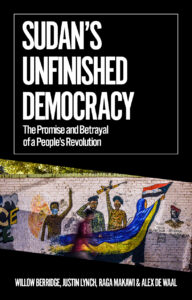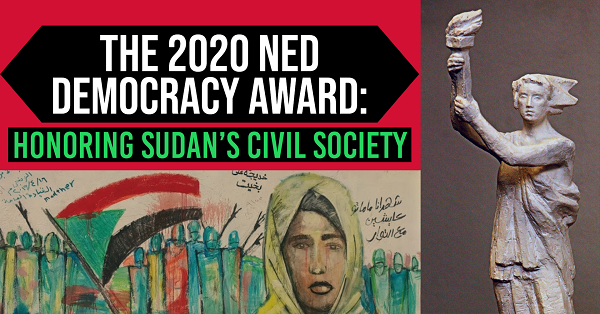Sudan’s warring factions agreed to a 72-hour ceasefire starting on Tuesday, while Western, Arab and Asian nations raced to extract their citizens from the country….. A coalition of Sudanese civil society groups that had been part of negotiations on a transition to democracy welcomed the news, Reuters reports.
 Civilian leaders entered into a negotiation with the military over the future of the country shortly after Bashir fell in April 2019, notes Justin Lynch, co-author of “Sudan’s Unfinished Democracy.” The two sides were not evenly matched. Because of these leadership challenges, the pro-democracy forces struggled to bargain with the disciplined military.
Civilian leaders entered into a negotiation with the military over the future of the country shortly after Bashir fell in April 2019, notes Justin Lynch, co-author of “Sudan’s Unfinished Democracy.” The two sides were not evenly matched. Because of these leadership challenges, the pro-democracy forces struggled to bargain with the disciplined military.
Any momentum that pro-democracy advocates had during the negotiations was stamped out in June 2019 when RSF soldiers violently dispersed the sit-in, he writes for CNN.
“We told the international community over and over you cannot trust a military dictatorship and militias,” says Mohamed, a member of the Popular Resistance Committees, a grassroots collection of independent pro-democracy activists.
“They have always been willing to burn the country down to enrich themselves and gain more power,” he says via messaging app from Khartoum. “Now they are doing it on a larger scale.”
To balance and ultimately control the power of Sudan’s military forces, the U.S. and its ideological allies in Europe relied on two forces, Walter Russell Mead writes for The Wall Street Journal:
- The first was Sudanese civil society. Popular resistance to Mr. Bashir’s government led to months of unrest and opened the door to his overthrow as hundreds of thousands of protesters took to Sudan’s streets. Such popular movements are inspiring, but they have consistently failed to generate the organization and power needed to create democratic states across the region. As usual, American officials fundamentally overestimated both the power and the competence of local democratic allies.
- The other force on which the U.S. relied was the economic power of the American-led world order. The 2011 secession of South Sudan cost Sudan 75% of its oil reserve fields, and continuing conflict in and around the oil-rich border areas has reduced production in both countries….. Economic isolation helped undermine Mr. Bashir and paved the way to his downfall. American strategists hoped, not entirely unreasonably, that similar pressure would force the army and the RSF to respect American red lines enough to make at least some token cosmetic gestures in the direction of democracy.
 Sudan’s leading civil society groups were recognized with the 2020 Democracy Award from the National Endowment for Democracy (NED) for their role in facilitating the country’s albeit fragile democratic transition.
Sudan’s leading civil society groups were recognized with the 2020 Democracy Award from the National Endowment for Democracy (NED) for their role in facilitating the country’s albeit fragile democratic transition.
The Atlantic Council hosts a panel of experts online at 11:00 a.m. ET on Wednesday, April 26 (below) to discuss the re-emerging conflict, the role of external actors in fueling and funding the conflict, and ways to bring this crisis to an end.
Featuring
Ambassador Tim Carney, Former US Ambassador to the Republic of Sudan
Ernst Jan “EJ” Hogendoorn, Former Senior Advisor to the US Special Envoy to Sudan and South Sudan
Ambassador Nureldin Satti, Global Fellow and Co-Chair, Wilson Center’s Sudan Working Group
Thomas S. Warrick, Senior Fellow, Scowcroft Center for Strategy and Security’s Forward Defense practice and the Scowcroft Middle East Security Initiative, Atlantic Council
Nicole Widdersheim, Deputy Washington Director, Human Rights Watch
Ambassador Mary Yates, Former Charge d’Affaires, US Embassy Khartoum







